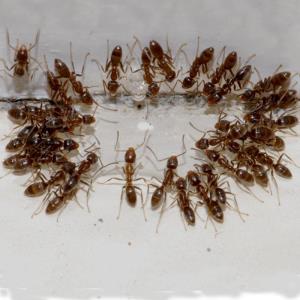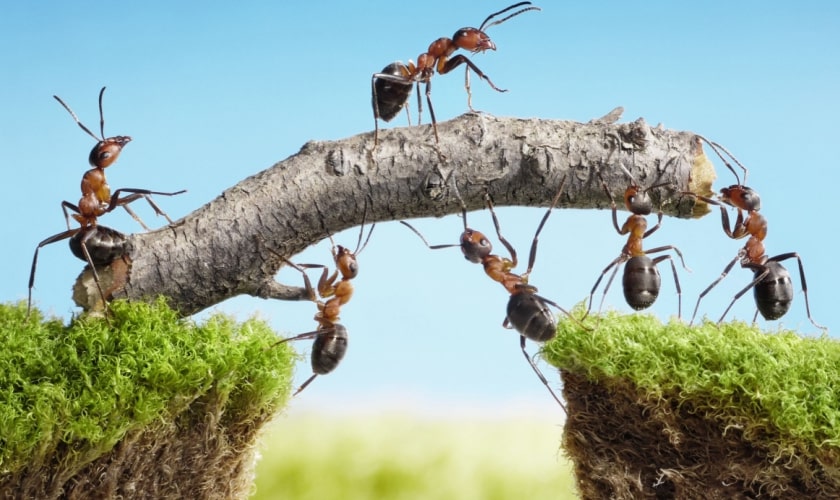Comprehensive Termite Control: Safeguard Your Residential Or Commercial Property with Professional Services
Comprehensive Termite Control: Safeguard Your Residential Or Commercial Property with Professional Services
Blog Article
Ecological Effect of Parasite Control: Harmonizing Effectiveness With Sustainability
The environmental influence of pest control is a critical issue that needs a delicate equilibrium in between accomplishing performance in managing pests and guaranteeing sustainability of our communities. As we aim to secure our crops, homes, and health from the threats presented by bugs, the approaches we utilize can unintentionally hurt the atmosphere. From the use of dangerous chemicals that leak right into our soil and water to the unexpected repercussions on non-target species, the consequences of standard parasite control methods are significant. Nonetheless, there are emerging techniques that use hope for a more sustainable approach to pest management. These solutions not only goal to address the prompt bug troubles yet additionally take into consideration the lasting health of our earth.
Harmful Chemicals in Parasite Control
The utilization of dangerous chemicals in bug control positions considerable environmental and health dangers that call for mindful consideration and reduction methods. Pesticides, insecticides, and herbicides are commonly used to eradicate bugs, but their prevalent application can bring about unintentional repercussions. These chemicals can contaminate soil, water resources, and the air, impacting not just the targeted pests however likewise valuable insects, wildlife, and human beings.

To deal with these dangers, integrated insect administration (IPM) techniques are being promoted as an extra lasting alternative. IPM entails a mix of approaches such as biological control, environment control, and the targeted use pesticides as a last option (ant control cornelius nc). By taking on an all natural technique to pest control, we can minimize the ecological and health and wellness impacts associated with unsafe chemicals while successfully taking care of pest populations
Influence On Non-Target Species
Considering the unintended effects of parasite control techniques, the effect on non-target species is an important aspect that requires detailed evaluation. While insect control procedures aim to target certain parasites, other organisms in the ecological community may be unintentionally impacted. Non-target varieties, including useful pests, birds, animals, and also plants, can suffer straight or indirect injury from chemical applications or organic control approaches.
Pesticides created to combat a certain bug bug might hurt pollinators like bees or natural predators such as ladybugs. Organic control agents, if not species-specific, can position dangers to unplanned targets, disrupting the eco-friendly equilibrium.
To mitigate the impact on non-target types, integrated parasite management (IPM) approaches that emphasize a holistic strategy to pest control are advised. These approaches prioritize using environmentally pleasant techniques, reducing harm to advantageous microorganisms while efficiently managing pest populations. Performing thorough danger analyses and monitoring the end results of insect control efforts are essential actions in guarding non-target varieties and promoting total ecosystem health.
Soil and Water Contamination
Unplanned environmental repercussions of bug control techniques extend beyond impacting non-target species, with substantial implications for soil and water contamination. Chemicals, herbicides, and chemical fertilizers utilized in bug control can seep right into the soil and infect groundwater, positioning a hazard to both terrestrial and marine ecosystems. Soil contamination can interrupt the equilibrium of microorganisms necessary for nutrient biking and plant development, causing decreased soil fertility and productivity. These chemicals can persist in the atmosphere for prolonged durations, collecting in the dirt and possibly getting in the food chain.
Water contamination is an additional critical concern associated with parasite control practices. To reduce dirt and water contamination from parasite control tasks, integrated pest management methods that prioritize sustainability and reduce chemical inputs are vital.
Air Pollution From Pesticide Usage
Exposure to airborne pesticides during farming applications poses a substantial concern for air contamination control procedures. They can volatilize right into the air and form unstable organic compounds (VOCs) and other air-borne pollutants when chemicals are splashed onto plants - termite control services. These chemicals can contribute to the formation of ground-level ozone, a significant element of smoke that can have damaging effects on human health and wellness, crop productivity, and general air top quality. In addition, pesticide drift, where pesticides are lugged by the wind to unplanned locations, can cause the contamination of close-by ecological communities and water bodies.

Strategies for Lasting Parasite Control
In the realm of farming methods, executing lasting insect control approaches is paramount for preserving eco-friendly balance and guarding crop yields. Lasting bug control highlights using ecologically pleasant techniques to handle pest populations successfully while minimizing injury to non-target microorganisms and environments. Integrated Insect Administration (IPM) is an extensively taken on approach that combines organic, cultural, physical, and chemical control techniques to achieve long-lasting bug administration services.
One secret approach in lasting pest control is promoting biodiversity within agroecosystems. By enhancing all-natural adversaries of parasites, such as predators and parasitoids, farmers can reduce the demand for artificial chemicals. Crop turning and diversity are also efficient methods to interrupt pest life cycles and develop much less favorable conditions for parasites to prosper. Furthermore, utilizing pest-resistant plant selections and utilizing strategies like trap chopping can help lower insect stress without counting heavily on chemical treatments. Eventually, by incorporating these sustainable pest control techniques, farmers can accomplish an equilibrium in between pest management performance and environmental stewardship.
Final Thought
In final thought, the environmental influence of insect control methods need to be carefully taken into consideration to stabilize performance with sustainability. Harmful chemicals made use of in parasite control can cause dirt and water contamination, air contamination, and harm non-target view website types - termite control. It is vital to implement sustainable bug control techniques to decrease these unfavorable effects on the atmosphere and promote a much healthier environment for future generations
By adopting a holistic strategy to pest control, we can lessen the ecological and wellness effects connected with hazardous chemicals while properly managing pest populations.

To minimize the air contamination triggered by chemical use, it is vital to embrace integrated bug administration approaches that focus on the usage of non-chemical insect control techniques, such as crop rotation, natural killers, and immune plant selections. Lasting parasite control emphasizes the usage of ecologically friendly techniques to manage insect populaces successfully while lessening harm to non-target microorganisms and communities. Integrated Bug Monitoring (IPM) is a widely embraced strategy that combines biological, cultural, physical, and chemical control techniques to achieve long-term pest monitoring services.
Report this page